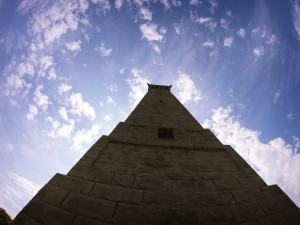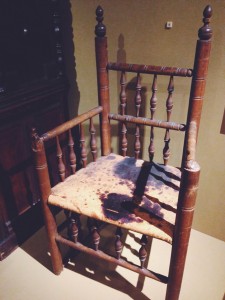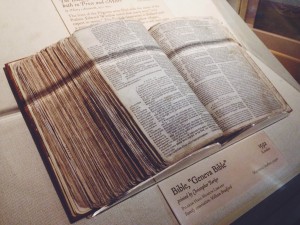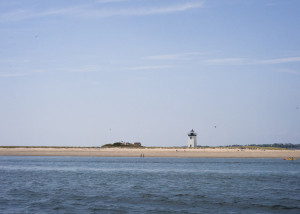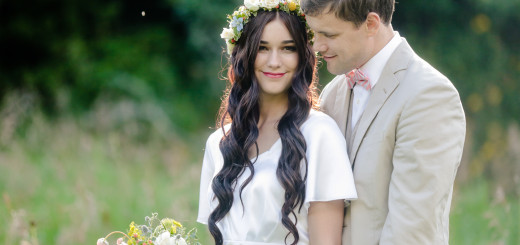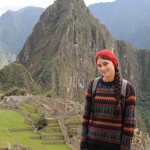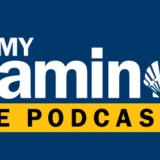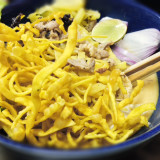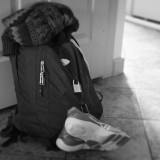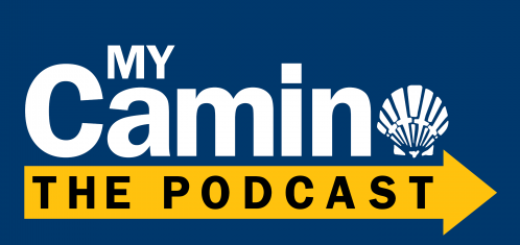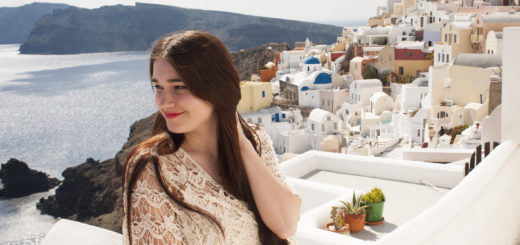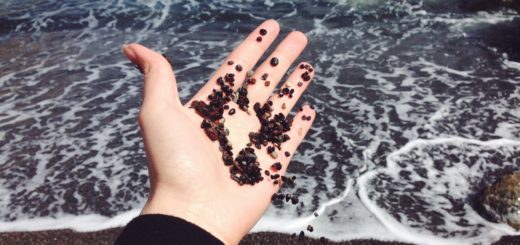The First Thanksgiving with My Pilgrim Ancestor, William Bradford
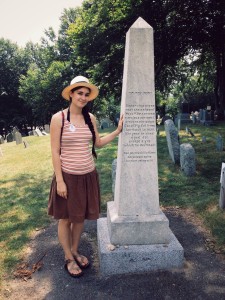
Me standing by the grave of my great, great+ grandpa, William Bradford, the Mayor of Plymouth Plantation.
Almost four hundred years ago my great, great+ grandpa, William Bradford, sailed on the Mayflower into Cape Cod into what is now Provincetown, Massachusetts. He later became the mayor of Plymouth Plantation and played a significant role in its history. Even though I have lived in this state for a few years, it is only within the past few months that I have visited the sites and tried to learn more about my grandfather and the history of the Pilgrims in the area. Given that it is Thanksgiving, I thought I would share some of what I am learning and a few pictures from my trips.
First, the Pilgrims did not land in Plymouth first. They had a late start and ended up way off course from their initial charter. They pulled into the Provincetown Harbor and signed the Mayflower Compact, only to find insufficient amounts of water and sandy ground which would not support farming. They spent several miserable weeks in Provincetown. My grandpa’s first wife, Dorothy, “fell” overboard to her death. Most believe she committed suicide due to the hopeless conditions (though there are some rumors of murder). Only when they gave up on the area did they move on to Plymouth. One thing that is undeniable: they would have been toast without the Native Americans.
In Bradford’s account called Of Plymouth Plantation, he wrote a section called the “First Thanksgiving.” He said the following:
“They began now to gather in the small harvest they had, and to fit up their houses and dwellings against winter, being all well recovered in health and strength and had all things in good plenty. For as some were thus employed in affairs abroad, others were exercised in fishing, about cod and bass and other fish, of which they took great store, of which every family had their portion. All the summer there was no want; and now began to come in store of fowl, as winter approached, of which this place did abound when they came first (but afterward decreased by degrees). And beside waterfowl there was great store of wild turkeys, of which they took many, besides venison, etc. Besides they had about a peck a meal a week to a person, or now since harvest, Indian corn to that proportion. Which made many afterwards write so largely of their plenty here to their friends in England, which were not feigned but true reports.”
We got the turkey and heaps of leftovers thing right, though I doubt I’ll see any fish on the table today. When Bradford says they “set apart a day of thanksgiving” later in his history, it is clear this is not the feast we ritualize. On the contrary, this was celebrated in July, and was meant “to command solemn days of humiliation by fasting, etc., and also for thanksgiving as occasion shall be offered.” We have drifted far from the fasting tradition, it seems. No complaints here.
I admire my grandfather’s bravery and commitment to freedom and I am enjoying reading his history. There are many things I cannot respect given modern sensibilities and more education. I don’t believe it “pleased God” to “smite” an unbeliever on the ship “with a grievous disease, of which he died in a desperate manner.”
I am also saddened by how they treated the Native Americans given how much their survival depended on them. But this year I have found myself thinking about Bradford’s legacy and all I have to be grateful for because he risked it all to create a better life with religious freedom. Today I am also remembering the Native Americans and their sacrifice to save the lives of the desolate Pilgrims, even when it was not reciprocated in later years to our collective shame. I hope we are aware enough to realize what we have while being brave enough to help others achieve the same. My personal goal is to channel more gratitude into more generosity this year.
